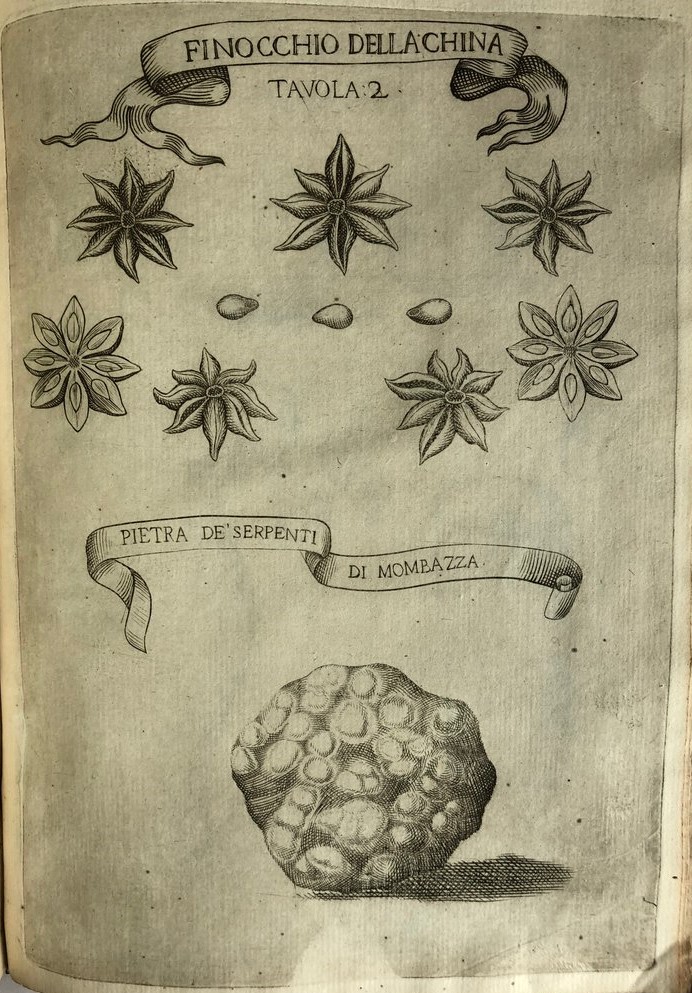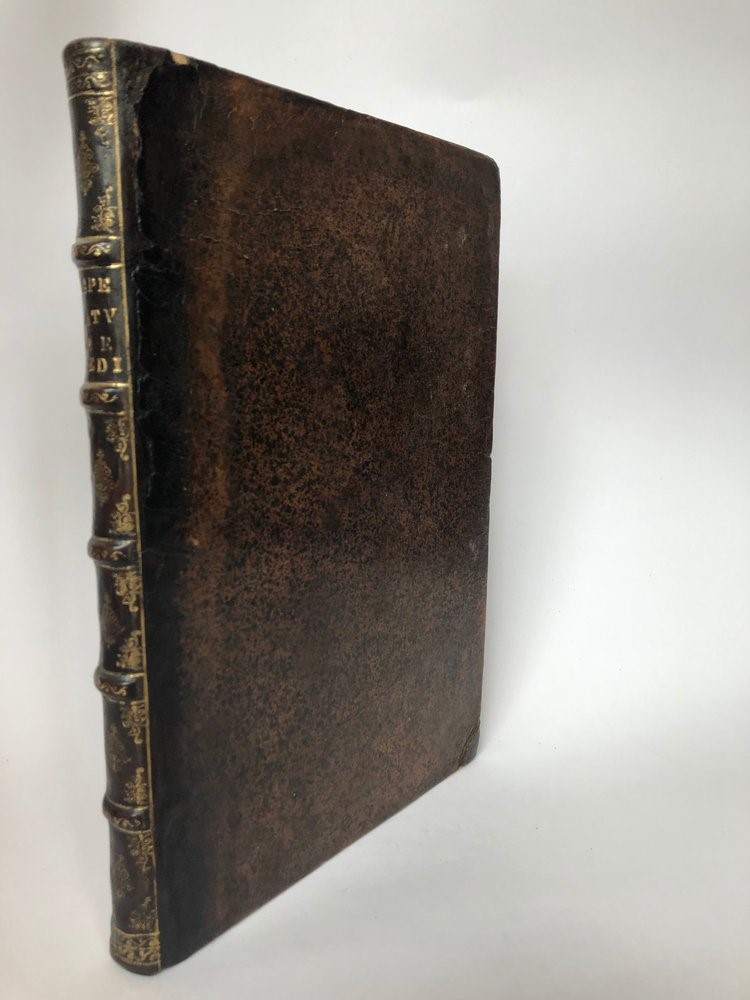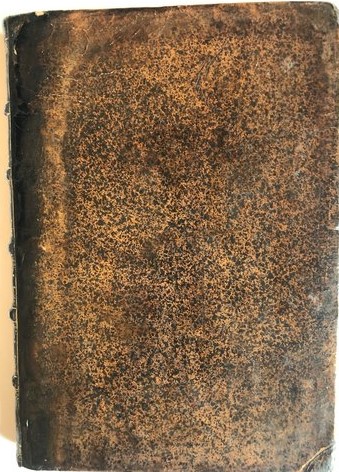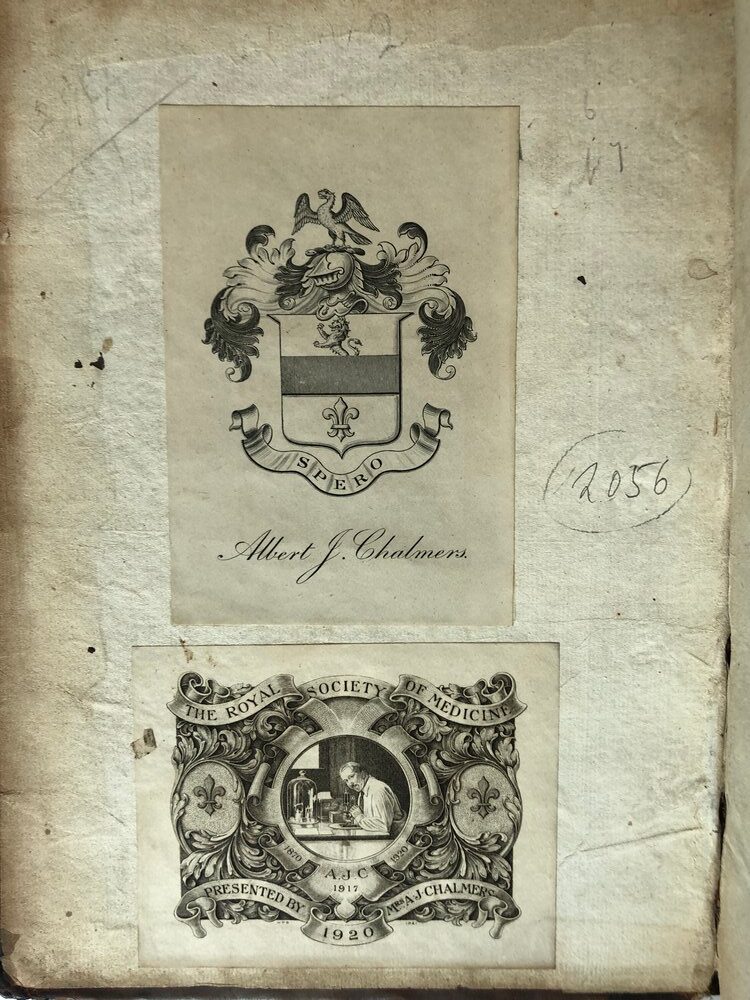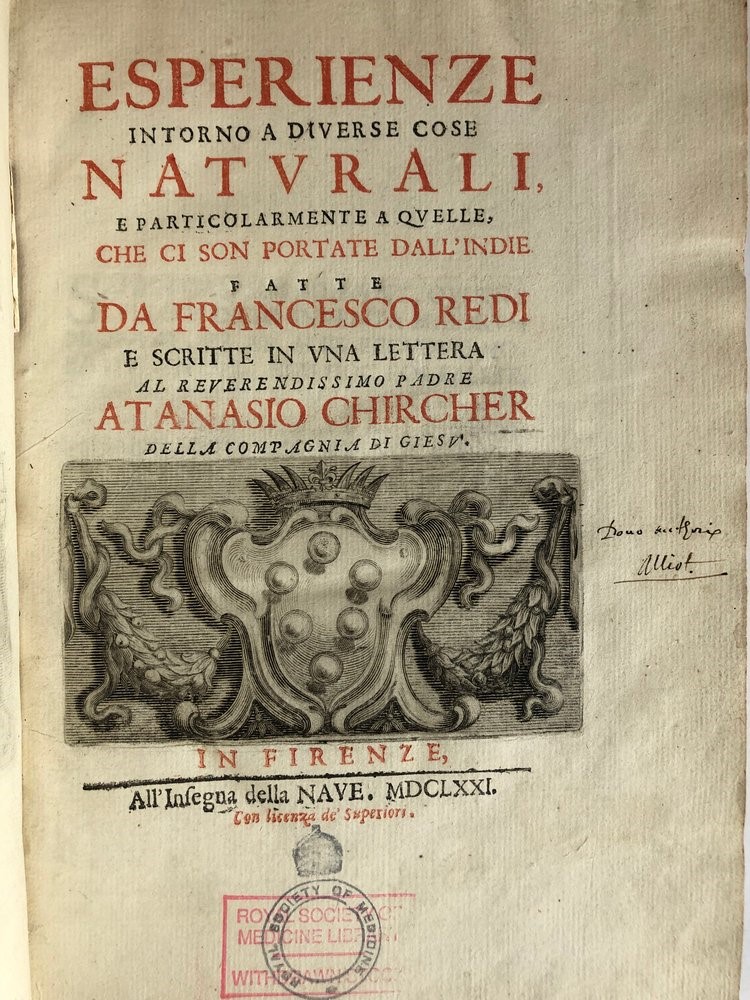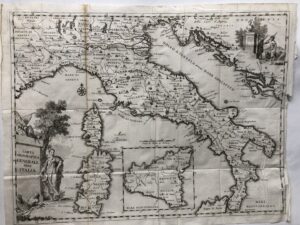Francesco Redi was an Italian scientist, physician, academic and poet, contemporary of Galileo. He is best known for demonstrating that the growth of worms in decaying flesh is not the result of spontaneous generation but of eggs laid by flies. The work is written in the form of a letter to Athanasius Kircher (1602-1680), polyhedral genius and author of dozens of books and considered “the last man to know everything” (Paula Findlen, 2004) although many of her theories, including spontaneous generation, were disavowed by contemporaries. Redi’s work investigates “several botanical and zoological specimens, including some brought from India; among these were Chinese star anise, cobra and iguana “stones”, vanilla beans and a Chinchona tree leaf”. (Hook & Norman). Experiments also contain the first scientific paper on the effects of nicotine. The six tables include illustrations of natural curiosities on the effects of which the Author has investigated. These include the Cobra and Mombasa snakes’ stones. Redi refutes Kircher’s experiments on the medicinal use of stones imported into Italy by merchants and missionaries from India, China and Southeast Asia (believed to be useful as antidotes to poison). Redi argues that the stone of the Mobasa snake, useful in facilitating childbirth, does not come from the head of the reptile from the stomach of the rhinoceros.

